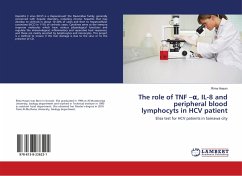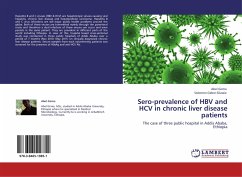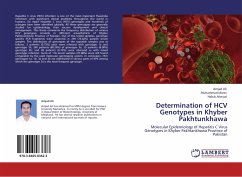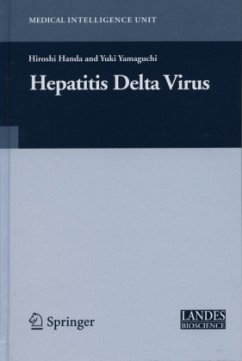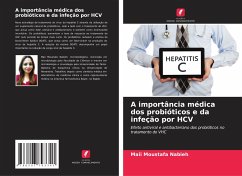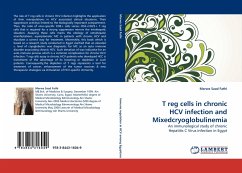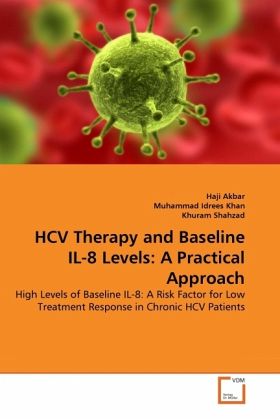
HCV Therapy and Baseline IL-8 Levels: A Practical Approach
High Levels of Baseline IL-8: A Risk Factor for Low Treatment Response in Chronic HCV Patients
Versandkostenfrei!
Versandfertig in 6-10 Tagen
39,99 €
inkl. MwSt.

PAYBACK Punkte
20 °P sammeln!
HCV, a major cause of liver disease worldwide, is frequently resistant to the antiviral interferon- therapy, being the only approved treatment available. It has been investigated recently that interleukin-8 (IL-8) induced by HCV partially inhibit the IFN- therapy. Therefore we aimed to prospectively utilize the baseline IL-8 levels in the HCV infected serum and predict its role in sustained virological response (SVR) to IFN- + ribavirin therapy, in chronic HCV patients. Fifteen normal volunteers and 110 HCV patients were enrolled in this study. Their baseline IL-8 levels were determined by ELI...
HCV, a major cause of liver disease worldwide, is frequently resistant to the antiviral interferon- therapy, being the only approved treatment available. It has been investigated recently that interleukin-8 (IL-8) induced by HCV partially inhibit the IFN- therapy. Therefore we aimed to prospectively utilize the baseline IL-8 levels in the HCV infected serum and predict its role in sustained virological response (SVR) to IFN- + ribavirin therapy, in chronic HCV patients. Fifteen normal volunteers and 110 HCV patients were enrolled in this study. Their baseline IL-8 levels were determined by ELISA and pre & post-treatment viral loads were recorded using qPCR. Different response rates to the therapy were observed and significant correlation was found between baseline IL-8 level and response to IFN therapy (P0.01). Comparatively higher mean baseline IL-8 levels were observed in non-responders (2442.02 ±159.92 pg/ml), than the late (1009.31 ±45.31) and rapid (540.91 ±27.06 pg/ml) responders. Baseline IL-8 measurement should be used as a management tool before deciding the therapy, being involved in pathogenesis, persistence and resistance to antiviral therapy.



